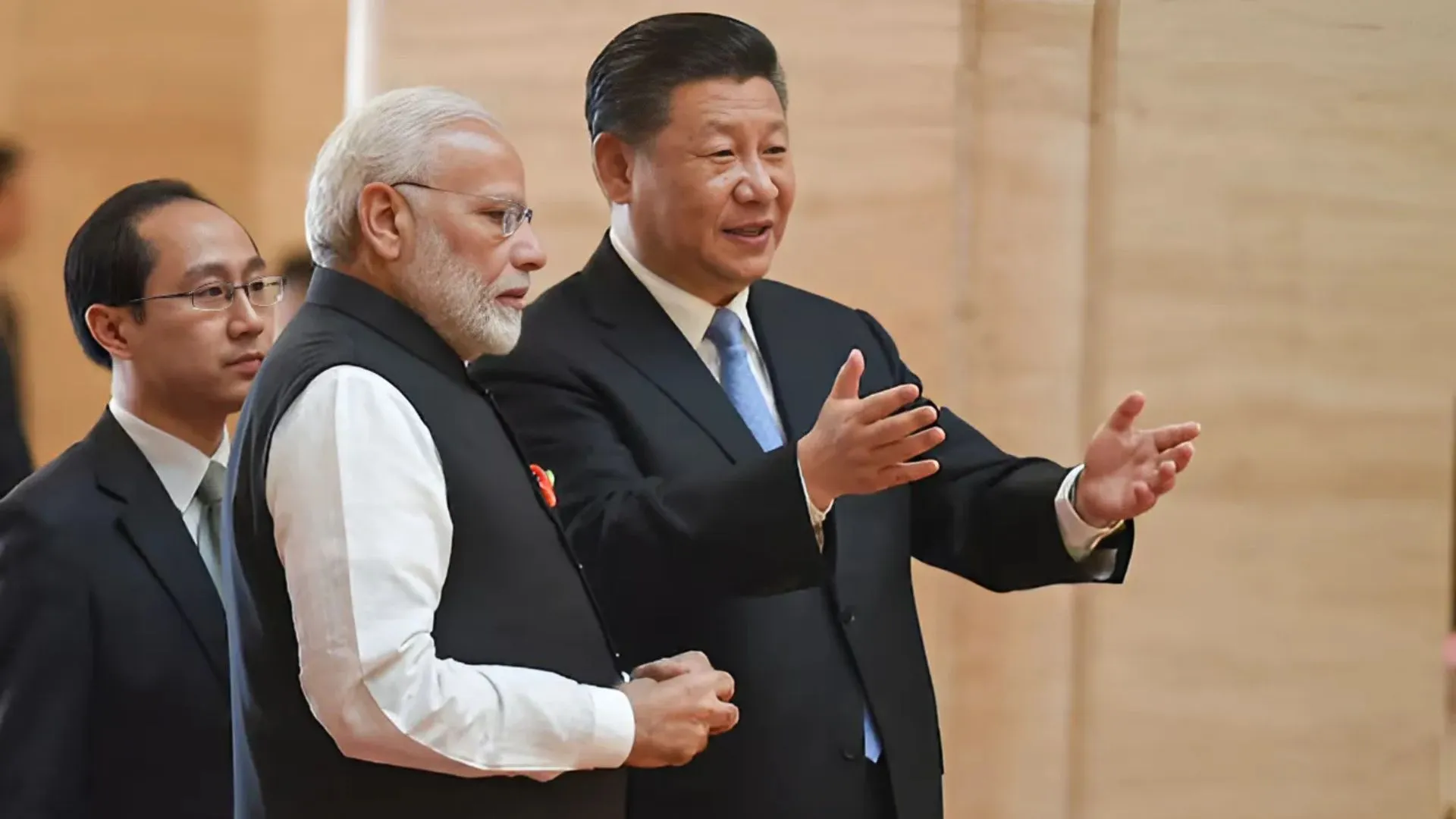The recent diplomatic efforts between Indian Prime Minister Narendra Modi and Chinese President Xi Jinping signify a critical juncture in addressing military tensions along the Line of Actual Control (LAC) in East Ladakh, following the People’s Liberation Army (PLA) transgressions in May 2020. The outcomes of these discussions reflect the resolve of the Indian government, the Indian Army’s determination, and the intricate coordination between military and diplomatic channels.
Modi and Xi in Kazan
The meeting between Prime Minister Modi and President Xi in Kazan was characterized by professionalism, setting the stage for comprehensive discussions on reducing military friction along the 3,488 km Line of Actual Control. Following their meeting, both leaders engaged in delegation-level talks aimed at establishing a framework for Special Representative Dialogue. This dialogue is focused on de-escalating military tensions, while the foreign ministers from both nations will work towards normalizing bilateral ties.
Representing India in the Special Representative Dialogue will be National Security Advisor Ajit Doval, while Wang Yi, Director of the Chinese Communist Party Central Committee Commission and Foreign Minister, will represent Beijing. Wang is also expected to engage with External Affairs Minister S. Jaishankar in discussions aimed at restoring diplomatic relations.
Resumption of Patrolling
The successful resumption of patrolling in the Depsang Bulge and Demchok areas marks a significant breakthrough, achieved through extensive negotiations within the Working Mechanism for Consultation and Coordination on India-China Border Affairs (WMCC). The WMCC has met 17 times since the violent clash in Galwan on June 15, 2020, while military commanders engaged in talks 21 times to facilitate disengagement and the resumption of patrolling activities.
Although the disengagement from the Gogra-Hot Springs-Khugrang Nullah region was announced on September 9, 2022, India has maintained its stance on resuming patrolling rights in the Depsang Bulge and Demchok. The government made it clear that the path to normalization hinges on fulfilling this crucial military condition. Despite criticism from the Opposition Congress regarding buffer zones, insiders report that these zones at key friction points like Galwan and Pangong Tso are not permanent, and the Indian Army is committed to patrolling them in the near future.
The existing patrolling agreement only covers the Western Sector, where both the Indian Army and PLA had previously blocked each other. This agreement provides India with diplomatic leverage, ensuring that China does not become a liability in the geopolitical landscape.
Navigating the Path to De-Escalation
With disengagement processes underway and patrolling set to resume, both India and China now face the intricate task of negotiating de-escalation details. Currently, more than 50,000 troops, tanks, and missile regiments are stationed on both sides of the LAC, with fighter jets on standby in their respective hinterland bases. Both armies will need to scale down their troop presence to pre-April 2020 levels, as a substantial number of forces remain forwardly deployed in East Ladakh.
The pressing question remains whether troops on both sides will return to their barracks and how logistics will be managed. As both armies brace for the harsh winters and snowstorms of East Ladakh, the implementation of the agreement remains crucial.
Legacy of Border Issues
While the Congress party blames the Modi government for capitulating under Chinese military pressure, it is essential to understand that the current border challenges are rooted in historical legacies dating back to the 1950s and the events leading up to the 1962 war. The unresolved border disputes serve as a reminder of China’s occupation of Aksai Chin, which was solidified during the construction of the highway between Lhasa and Urumqi in 1956.
The ineffective political and military leadership at the time further complicated matters, with crucial intelligence about the Tibet-Sinkiang Highway overlooked. The enduring narrative of “Hindi-Chini Bhai Bhai” masked the looming tensions and unresolved disputes.
A Strategic Framework for Normalization
The recent dialogue between Modi and Xi, though civil, is an opportunity for India to assert firm and verified steps towards normalizing relations with China. This approach aims to prevent flare-ups along the border, while the PLA is expected to refrain from unilateral actions on the LAC. The patrolling agreement has the endorsement of President Xi, who oversees the Central Military Commission, reinforcing the importance of this accord.
Prime Minister Modi’s mantra of “mutual trust, mutual respect, and mutual sensitivity” will guide the bilateral relationship as both countries strive to avoid military confrontations.
ALSO READ: Justin Trudeau Faces Resignation Calls from Liberal Party: Will He Step Down?




